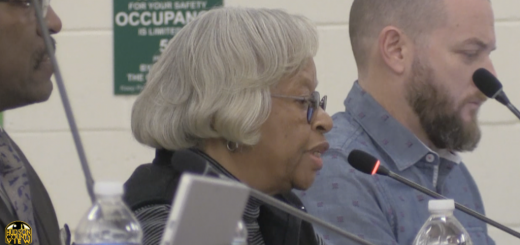Hashem Helps the Givers – Part II

How do some small-scale chesed organizations grow to become major organizations? The difference, after all, is not merely one of scale. Running a gemach with total assets of $500, for instance, has little to do with running one lending ten million dollars annually, involving more than a dozen bank accounts, and a full-time staff.
Similarly, nothing in the backgrounds of Rabbi Yaakov Weisel and his wife Hadassah, a maggid shiur and a housewife, respectively, suggested the ability to transform their collection campaigns for various neighbors into a multi-million dollar chesed organization.
Yet, in the first case, Rabbi Shmuel Avraham Myski, zt”l, seamlessly made the transition to chief executive of the world’s largest gemach, mastering such arcane subjects as federal bankruptcy law along the way. Every aspect of his gemach reflected his careful attention to detail. The rooms in which loan applicants were interviewed, for instance, were each sound-proofed and had music piped in so that there was no chance of what was said in one room being heard in another.
And Yad Eliezer, under the day-to-day direction of the Weisels’ son Dov, has proven itself a highly efficient organization. Each year Yad Eliezer collects approximately a million dollars of produce from farmers who would have otherwise burned it or left it in the field to rot. Had Yad Eliezer not been capable of collecting such a large quantity of produce and distributing it to the neediest sectors of the population, the Agriculture Ministry would never have offered its assistance.
One tax inspector, after days spent going over Yad Eliezer’s books, left his own contribution, in recognition of the organization’s meticulous financial record-keeping as well as its work.
When the impulse to benefit others is pure, Hashem provides the organizational know-how to give full vent to that impulse.
STILL HOW DO PEOPLE OF NO SIGNIFICANT PERSONAL MEANS and possessing no experience in fundraising gather the money needed to fulfill their chesed ambitions? Answer: They find many good Jews eager to become their partners. In the short-run, Klal Yisrael may occasionally be fooled – indeed there sometimes seems to be an inverse relationship between an organization’s fundraising success and its actual accomplishments. But in the long-run, Klal Yisrael‘s judgment about those most worthy of support is unerring.
Rabbi Chaim Goldberg, for instance, raises and distributes millions of dollars every year in Jerusalem. A social worker I know well claims that she has never called him to discuss a client where he did not know the family, often better than she did. No wonder that some of the richest frum Jews in the world send him large sums every year. They know that they will get the best possible return on their tzedakah dollar, and that every cent will reach its intended recipients.
In the early days of Yad Eliezer, Rabbi Weisel asked a friend of his who was traveling to America to try to interest potential donors. The friend made no commitment, and, in fact, spoke to only two potential donors. But one of those was Zolly Tropper. He and his wife Sori have dedicated themselves to Yad Eliezer night and day for the past 26 years, not only opening up a wide array of American contacts but also providing much of the business and organizational acumen responsible for the organization’s phenomenal growth.
Today Dov Weisel is in the business of selling mitzvos to the large group of supporters. Last year, Yad Eliezer’s Special Emergency Fund distributed nearly three million dollars. A “story” comes into the office, and Weisel immediately knows which one of Yad Eliezer’s regular donors will respond and find others to share in the mitzvah.
On my most recent visit to the office, the “stories” included that of a ger, who after five years of Torah learning already knows most of Mishnah Berurah by heart, preparing to marry a Russian ba’alas teshuva. Neither have a penny to their name. They left with enough for the basic necessities to start married life. The wife of a ba’al teshuva learning in kollel, whose baby needed an emergency eye operation received the money she needed. (I cannot publish even more gripping stories from that morning out of privacy considerations.)
WHEREVER ONE SEES PHENOMENAL GROWTH IN CHESED, there one can expect to see open Hashgacha Pratis. Rabbi Myski had a standing commitment that all those who loaned Keren HaChesed money could have their money back on a few days notice. There were days he awakened with hundreds of thousands of dollars in commitments due and no clue where the money would come from. But he used to say, “If I start the day happy, then I know I’ll have siyata d’Shmaya.” And so it was. The gemach never defaulted on a commitment.
Rabbi Chaim Kanievsky once told Dov Weisel not to accept a donation from an individual, from whom he had anticipated a very large gift. The next week an avreich in Manchester, England, who runs an annual Purim collection for Yad Eliezer, called to say that a certain individual, who insisted on remaining absolutely anonymous, had approached him about making a one-time donation of $250,000 to Yad Eliezer.
The Jerusalem municipality gave Yad Eliezer an old bomb shelter for its offices. Dov had a hard time reconciling himself to spending $80,000 of badly needed tzedakah money on refurbishing the structure. Just then, a lawyer whom he did not know, called to say that he represented the estate of someone who had just died and willed money to Yad Eliezer. (No one in Yad Eliezer had ever met this donor.) The only condition was there must be a dedication plaque.
At first, Dov could not think of anything in Yad Eliezer suitable for a plaque. Then it hit him – the new offices. And the size of the bequest? Exactly $80,000.
Originally appeared in Mishpacha magazine, October 24, 2006.




Recent Comments